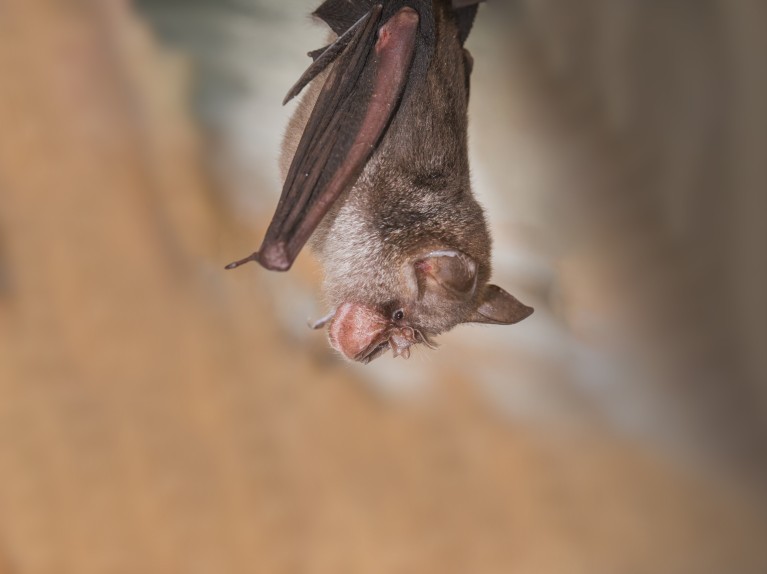
Least Horseshoe Bat (Rhinolophus pusillus). Credit: Charoenchai Tothaisong/Stock/Getty Images Plus.
Unsustainable food production is not only a problem for the environment, but also makes it easier for viruses and other pathogens to spill over from host animal species to humans, according to a study in Nature Food by an international group involving researchers from Italy, the United States and New Zealand. This is one of the first studies to analyse the environmental factors linked to the spillover of the SARS-CoV-2 virus.
The study1 first looked at the habitats of horseshoe bats in the family Rhinolophidae, that are most commonly found to carry SARS-related coronaviruses. In the scientific literature researchers identified suitable habitats for dozens of Rhinolophus bat species, covering an area of about 28 million square kilometers that ranges from Western Europe to the East Asia, and includes a small part of Australia and North Africa. Then they randomly chose 10,000 points from this area, and used various data sources to analyse forests, distribution of cropland, livestock density, and human settlements over a 30 km radius from each point. These are factors that disturb the habitats of bats and can create spillover ‘hotspots’. “They represent risk zones because high levels of forest fragmentation, animal farming and human presence decrease the natural distance between wildlife and humans, facilitating the transmission of coronaviruses,” says Maria Cristina Rulli, Professor of Environmental Engineering at the Politecnico di Milano.
Hotspots were found in particular in China, but also in Indonesia, India, and Bangladesh. The research team then identified areas that are at risk of becoming hotspots because of small changes in just one of the three land-use factors (fragmentation, livestock density and human settlement) considered by the study. These potential new hotspots are concentrated south of Shanghai, in Japan, and in the north Philippines. This information could instruct government policies to reduce the risk of spillovers. “For example, implementing an effective reforestation plan is very difficult,” says Rulli. “Mitigation strategies could focus instead on reducing livestock or human density.”
According to Alessandra Piccirillo, an expert in epidemiology and biotechnology of food-borne zoonoses at Università di Padova, who was not involved in the study, "this is an important piece of the great puzzle that will lead us to understand the direct link of a potential passage of SARS-CoV-2 from animals to humans.”
